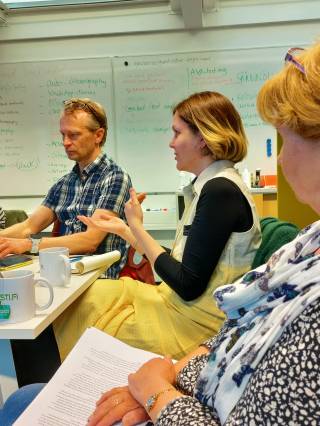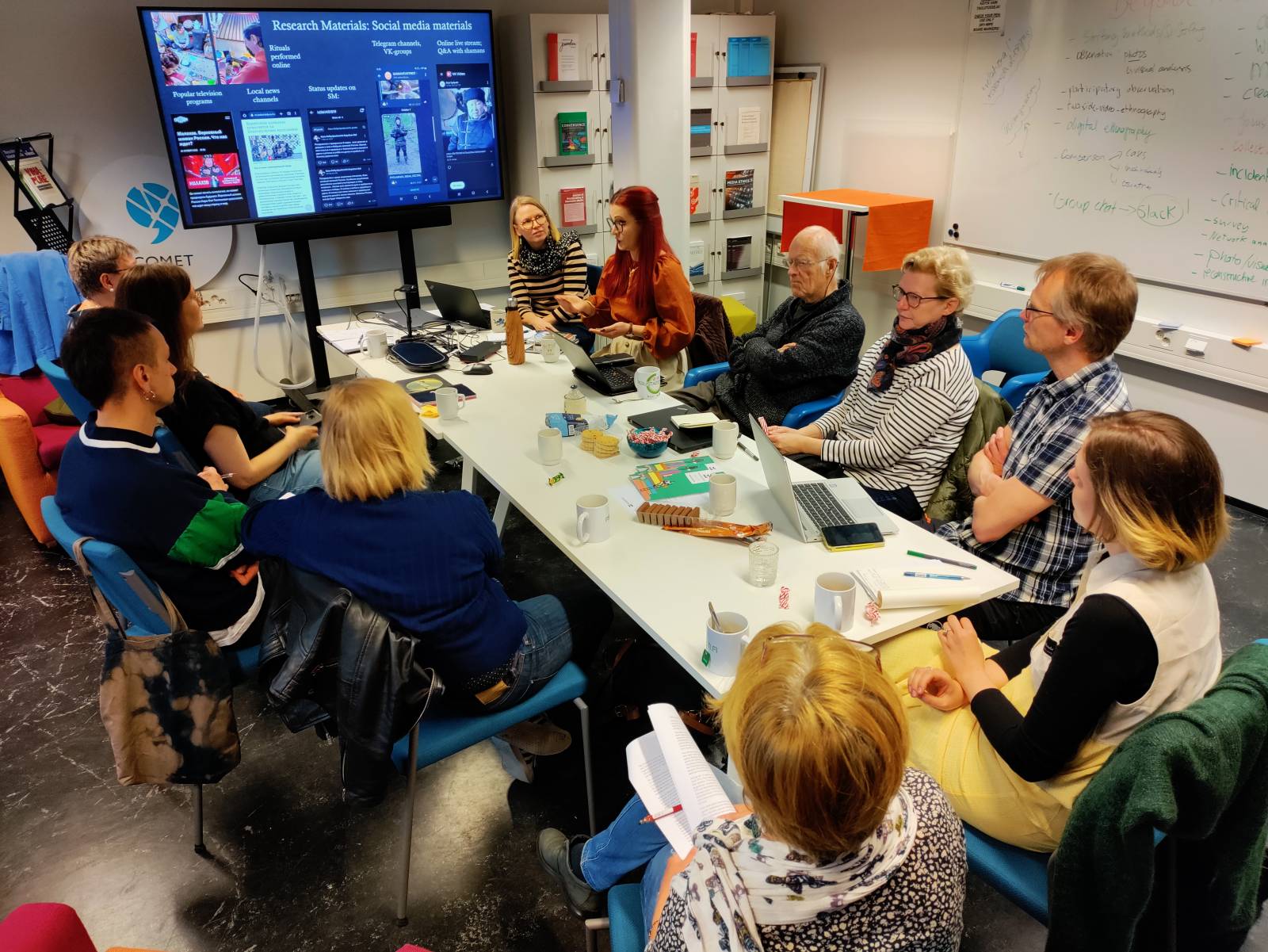Face-to-face TaRC meetings have been quite rare occasions in recent years due to the COVID-19 pandemic, but on Wednesday 17 May we could celebrate the end of the spring term together at Tampere University!
We enjoyed each other’s company with coffee and some sweet treats, and had the pleasure to hear five interesting presentations by colleagues on their ongoing research projects.
As is always the case at TaRC, the presentations showcased a wide variety of methodological approaches within literature and media studies. Topically, the war in Ukraine featured in all the projects, one way or another.
Four of the presentations had a direct connection to the war. Kaarle Nordenstreng and Svetlana Pasti (both from Tampere University) presented results from their project on TV news coverage of the war in nine different countries.

Continuing with TV, Valentyna Shapovalova from the University of Copenhagen gave us the lowdown on the final article of her upcoming PhD. In the article, she observes how pro-Kremlin TV has weaponized discourses of gender and sexuality in representations of the full-scale invasion of Ukraine.
Mika Perkiömäki (University of Helsinki) elaborated on his project on nuclear narratives in a time of war. His focus is currently on nuclear power plants as battlefields in fiction and journalism, and the representations given to places like Chernobyl and Zaporizhzhija.
Katja Lehtisaari (Tampere University) gave us an update on her new joint project with Olga Dovbysh (University of Helsinki) and Elena Rodina (Civil Rights Defenders) that investigates independent Russian media in exile, and their prospects going forward.
In addition, we heard from Daria Kuznetsova (Tampere University) whose upcoming PhD deals with a highly interesting phenomenon: shamanism in Russia. Although originally not connected to the events in Ukraine, her project had also been affected by the “holy war” owing to the connections between the Kremlin and some of the leading shamans. This had necessitated her to rethink some of the focal points of her study.
The discussion on the presentations was lively. Many pointed out difficult questions related to methodology and data collection in the current conditions, and it was agreed that this topic was worthy of a seminar in its own right. Planning for this seminar will start in due course.
Other future plans were also discussed. The lecture series Online Talks on Russian Media continues in co-operation with the Russian Media Lab Network (University of Helsinki) in the autumn, and there are also plans to reintroduce the student MA thesis presentation day that was a part of TaRC’s repertoire in the pre-COVID times.
More on these and other plans to follow in the autumn. For now, TaRC folks want to wish you a nice and refreshing summertime!

